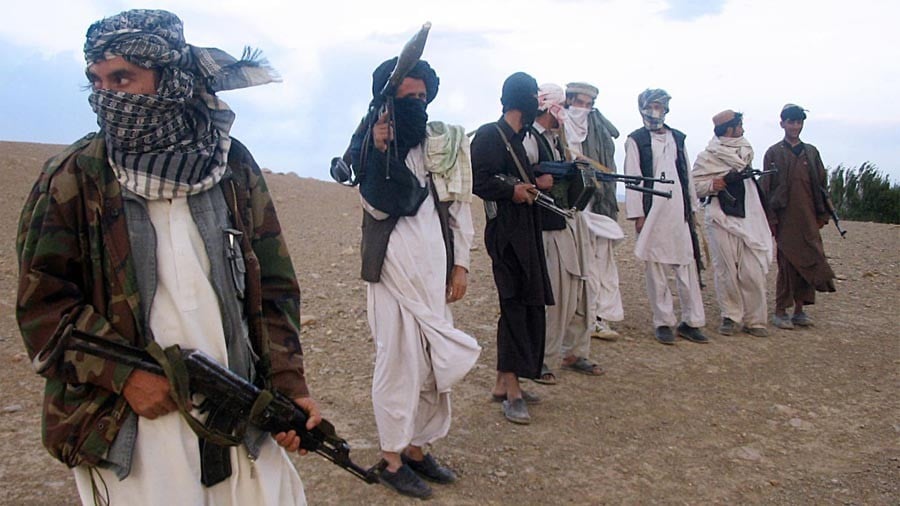
With Taliban behaving as true representatives of the Afghans’ will, the US policy needs serious introspection

Typically characteristic of the arrogance of militant Islamists who lay claim to the possession of absolute truth, Taliban, while ignoring the Afghan government, wrote a highly opinionated letter titled Letter to the American People on February 14. Unsurprisingly, haughty ever since they tasted power back in the late 1990s, the Taliban, a non-state militant movement with terrorist credentials, captioned the letter as a Letter of the Islamic Emirate to the American people, pretending to be a state -- Islamic Emirate -- rather than a militant movement.
Similarly, Taliban claimed to be the only true "representatives of the will of Afghan nation". Their opposition to discard the "Islamic Emirate of Afghanistan" has remained one of sticking points to render peace efforts in Afghanistan a failure. The letter also boasted about Taliban’s control of 60 per cent of the Afghan territory, as claimed by the terrorists. It also exhorted the American government to put an "end to the occupation of Afghanistan". Nevertheless, Taliban’s "preference is to solve the Afghan issue through peaceful dialogues", the letter stated.
The underlying psyche behind not to talk to the Afghan government stems as much from considering it to be the illegitimate government -- because it is ‘un-Islamic’ and ‘puppet regime’ -- as it emanates from the fact that it is the US government that is the authority to talk to. With hindsight, and while reading the Taliban letter addressed to the Americans, the inescapable fact and impression is never lost upon the observers and readers that Taliban consider themselves to be the only flag bearers of Islam and even Afghan nationalism!
For Taliban, while speaking on behalf of all countrymen, it is Afghans’ "religious, legal and national obligations" to fight American forces. Likewise, Afghan governments post Taliban were "imposed government[s] in Afghanistan" under which such a system has taken roots that has rendered Afghanistan as number one in administrative and financial corruption, violation of human rights and usurpation of land and embezzlement of international aid, as to quote the letter.
As per their narrowly conceived and hollow interpretation of Islam, Taliban, being led by their jihadist ulema, are in the possession of absolute truths about not only religion but that of mundane life as well. From this perspective, Islam, as interpreted by Taliban mullahs only, is a complete code of life meant for the whole world. It was this undiscerning mindset that succored global jihadist outfit of al Qaeda in the 1900s. On this count, the US cannot satiate the unsatiating desire of the militant Taliban.
On the second count, it is the lack of credibility on the part of Afghan government marred by not only corruption, abuse of power and internal division within the unity government but also from dysfunctionality as the authoritative arm of the state. The widespread apprehensions, not misplaced though, are that the central government can’t function without American support and that Taliban are just waiting for the opportunity of American withdrawal to replicate their 90s’ rule, perhaps the truly darkest years of Afghan state in the annals of history! It is here that international community led by the US can arrest the vulnerability of Afghan state harking back to the dark alleys of authoritarianism. This is something easier said than done, however!
The US and regional states have a range of competing interests. The US’ failure to pacify Afghanistan stems from its own policy of running with the hare and hunting with the hounds. Apparently, the US is in the pursuit of a long term stay in Afghanistan and the presence of Taliban, the main source of instability, in the country is used to justify the American stay at the court of Kabul. Whatever might happen, how grave may the scenario be, the US won’t allow the spectre of ascendancy of Taliban as the exclusive rulers of Afghanistan. Neither would Taliban be consigned into oblivion is part of the game.
This gives regional states the godsend opportunity to secure their own ends in the country mostly at the expense of Afghan national government. Pakistan envisions a pro-Islamabad and anti-Delhi regime at the court of Kabul. India wants to encircle Pakistan and squeeze it from eastern and western sides of Islamabad’s borders with New Delhi and Kabul respectively. China wants a pacified Afghanistan and is not concerned much with who rules the country though Beijing fears Islamists’ control of Kabul for its own unsatisfied Muslim Uighur community. Taliban seek to regain the control of Afghanistan as being the country’s exclusive rulers.
Considering Taliban as the mere extension of Pakistan’s influence is fundamentally flawed! Though proxies, Taliban have their own interests independent of their patron. In all probability, all major regional states but India, and the Afghan government would welcome the prospect of American pullout from Afghanistan!
The US stance that Taliban should be directly talking to the Afghan government is a step in the right direction. The US should also be remedying what is the essential Achilles heel of the Afghan state: the US dual policy towards Afghanistan must end before the grinding militant violence in the country could peter out. Until the US could ensure a semblance of centralised statehood in Afghanistan, Kabul’s nemeses, including Taliban, won’t take the Afghan government seriously and Afghan president’s Ashraf Ghani’s call for peace talks to Taliban, as he did one on 28 February, will definitely fall on deaf ears!
The US Afghan policy needs serious introspection. Meaningful state building in Afghanistan will be Washington’s atonement for its wrongdoings in the country.